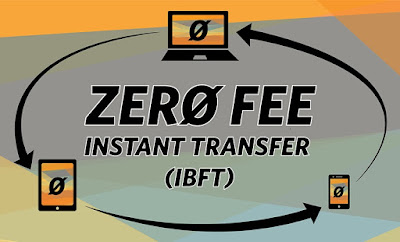Established in 2008, Malaysian Electronic Clearing Corporation Sdn Bhd (MyClear) is a wholly-owned subsidiary of Bank Negara Malaysia (BNM).
MyClear is built to operate world-class payment systems and financial market infrastructures that safely, reliably and efficiently enable the functioning and development of Malaysia's financial system as well as the economy as a whole.
MyClear Services
More info: http://www.myclear.org.my/
MyClear is built to operate world-class payment systems and financial market infrastructures that safely, reliably and efficiently enable the functioning and development of Malaysia's financial system as well as the economy as a whole.
MyClear Services
- Real Time Electronic Transfer of Funds and Securities (RENTAS) - Real-time gross settlement of wholesale funds transfers and securities trades denominated in Ringgit as well as Renminbi. RENTAS' Renminbi settlement service supports Malaysia's role as a recognised off-shore Renminbi clearing hub.
- Debit Securities Services - end-to-end facilities for issuers, arrangers and investors covering the entire bond lifecycle from issuance to trade settlement and depository:
- Fully Automated System for Tendering (FAST) - automated issuance and tendering system for all government securities, BNM papers, private debt securities and money market instruments, as well as a repository of reference information of all active debt securities issued in Malaysia.
- RENTAS Depository - facilities custody of all unlisted debt securities in Malaysia. Today, we operate the largest depository for sukuk instruments in the world, as well as the largest debt securities depository in ASEAN.
- Sistem Penjelasan Imej Cek Kebangsaan (eSPICK) - Malaysia's national cheque clearing house.
- Interbank GIRO (IBG) - A funds transfer system that allows account-to-account credit transfers between 42 participating banks in Malaysia.
- JomPAY - Malaysia's national bill payment scheme where customers can pay any registered biller from Internet or Mobile banking by drawing funds from Current, Savings or Credit Card accounts. Billers need only sign up with one bank to collect payments via 42 banks.
- MyDebit - Malaysia's domestic debit card scheme, which allows point-of-sale payments using ATM cards issued by banks in Malaysia.
- FPX - Direct-to-bank Internet payment gateway, which facilitates Internet payments and e-commerce purchases using savings and current accounts.
- Direct Debit - Allows billers and merchants to debit a consumer's bank accounts on a periodic basis to collect recurring payments.
More info: http://www.myclear.org.my/










